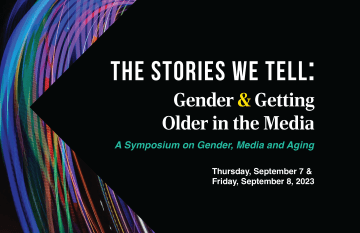
The Stories We Tell: Gender and Getting Older in the Media
- The Agora at the Annenberg Public Policy Center
- 202 S. 36th St. Philadelphia, PA 19104
Join the Annenberg Center for Collaborative Communication for a symposium examining the gendered contours of age and aging in media.
Mediated representations of age/aging have long been tethered to narrow conceptions of gender. From shows like Golden Girls and Sex and the City to the films of Clint Eastwood and Harrison Ford, most media depictions of women over 40 have historically emphasized their lack of societal value and diminishing erotic appeal, while men of a similar age have been depicted as distinguished and hegemonically masculine. In this way, media operate as both normative and normalizing channels for dominant and historical representations of age/aging. Thus, media representations of the universal progression of aging are rooted in identity, community and celebrity, and marked simultaneously by race, sexuality, ability, education, socio-economic status and citizenship.
This two-day symposium brings together scholars and media makers from around the world whose work engages with the cultural politics of age/aging across a range of interdisciplinary arenas, including film, television, music, advertising, digital and social media, journalism, health and more.
Highlighting work that considers critical intersectional and social perspectives of gender and age/aging, this gathering will explore the significance of age/aging through key areas of contemporary feminist and anti-racist concern, including questions of vulnerability, care, solidarity, visibility and representation, (state) violence, and possibilities for emancipation and social change.
The Stories We Tell: Gender and Getting Older in the Media is organized by the Annenberg Center for Collaborative Communication (Annenberg C3) and will be hosted at the Annenberg School for Communication at the University of Pennsylvania. It includes a Thursday evening keynote (September 7, 2023) event and a full day of Friday panels (September 8, 2023).
Full Program
Thursday, September 7
5:00 - 5:15 pm | Welcome & Introductory Remarks
The Agora at the Annenberg Public Policy Center
- Sarah Banet-Weiser, Ph.D. (she/her), Walter H. Annenberg Dean and Lauren Berlant Professor of Communication, Annenberg School for Communication, University of Pennsylvania; Research Professor, Annenberg School for Communication and Journalism, University of Southern California; Director, Annenberg Center for Collaborative Communication
5:15 - 7:15 pm | KEYNOTE EVENT: The Stories We Tell: Gender and Aging in a Mediated World
The Agora at the Annenberg Public Policy Center
- Susan J. Douglas, Ph.D. (she/her), Catherine Neafie Kellogg Professor and Arthur F. Thurnau Professor of Communication and Media, The University of Michigan
- Alfred L. Martin, Jr., Ph.D. (he/him), Associate Professor of Media Studies, University of Miami
- Brenda R. Weber, Ph.D. (she/her), Director, College Arts + Humanities Institute, Provost Professor and Jean C. Robinson Scholar, Department of Gender Studies, Indiana University Bloomington
- Paula Span (she/her), Veteran journalist and New Old Age columnist for the New York Times
7:15 - 8:00 pm | Reception
Annenberg Plaza Lobby
Friday, September 8
9:30 - 10:00 am | Breakfast
The Agora at the Annenberg Public Policy Center
10:00 - 10:15 am | Introduction
- Sarah Banet-Weiser, Ph.D. (she/her), Walter H. Annenberg Dean and Lauren Berlant Professor of Communication, Annenberg School for Communication, University of Pennsylvania; Research Professor, Annenberg School for Communication and Journalism, University of Southern California; Director, Annenberg Center for Collaborative Communication
10:15 - 11:45 am | PANEL ONE: Narratives for a New Era: Changing the Conversation
The Agora at the Annenberg Public Policy Center
- Jennifer Wong, Ph.D. (she/her), Director, Wallis Annenberg GenSpace
- Roberta Cruger (she/her), Senior Outreach Specialist, Hollywood, Health & Society, USC Annenberg Norman Lear Center
- Beth Hoffman, Ph.D. (she/her), Assistant Professor, Department of Behavioral and Community Health Sciences (BCHS), University of Pittsburgh
- Soraya Giaccardi, Ph.D. (she/her), Senior Researcher, USC Annenberg Norman Lear Center
11:45 am - 1:00 pm | Lunch
Annenberg Plaza Lobby
1:00 - 2:30 pm | PANEL TWO: Primetime: Aging and Identity in the Media
The Agora at the Annenberg Public Policy Center
- Sara Bakerman, Ph.D. (she/her), Independent scholar and Acquisitions Coordinator, University of Chicago Press
- Jo Littler, Ph.D. (she/her), Professor of Culture, Media and Social Analysis at Goldsmiths, University of London, UK
- Philana Payton, Ph.D. (she/her), Assistant Professor of Film and Media Studies, University of California, Irvine
2:30 - 2:45 pm | Refreshments
The Agora at the Annenberg Public Policy Center
2:45 - 4:15 pm | PANEL THREE: Mediating Menopause
The Agora at the Annenberg Public Policy Center
- Shani Orgad, Ph.D. (she/her), Professor of Media and Communications, London School of Economics and Political Science
- Catherine Rottenberg (she/her), Professor of Feminist Thought and Culture, Department of American and Canadian Studies, University of Nottingham.
- Deborah Jermyn, Ph.D. (she/her), Associate Professor in Film, University of Roehampton, UK
4:15 - 4:45 pm | CLOSING REMARKS
The Agora at the Annenberg Public Policy Center
- Sarah Banet-Weiser, Ph.D. (she/her), Walter H. Annenberg Dean and Lauren Berlant Professor of Communication, Annenberg School for Communication, University of Pennsylvania; Research Professor, Annenberg School for Communication and Journalism, University of Southern California; Director, Annenberg Center for Collaborative Communication
Participants
Sara Bakerman
Sara Bakerman (she/her) is an independent scholar specializing in feminist histories of stardom, aging, nostalgia, and memory in popular culture. Her work has appeared in Film History, Film Quarterly, Celebrity Studies, and Spectator, among others. After completing her Ph.D. at the University of Southern California, Sara served as a lecturer in English and film studies at Georgetown University and as managing editor of JCMS: Journal of Cinema and Media Studies (formerly Cinema Journal). Currently, she is a senior editorial associate and acquisitions department coordinator at the University of Chicago Press, focusing on books in digital and interactive media, film, television, and histories of race, gender, and sexuality. Sara’s own forthcoming monograph, According to Legend, is an intermedial history of aging female stardom in 1970s American culture.
Sarah Banet-Weiser
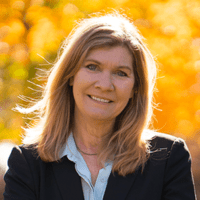
Sarah Banet-Weiser (she/her) is the Walter H. Annenberg Dean of the Annenberg School for Communication at the University of Pennsylvania and its Lauren Berlant Professor of Communication. In addition, she is a research professor at the University of Southern California’s Annenberg School for Communication and Journalism and the founding director of the Center for Collaborative Communication at the Annenberg Schools (C3). Her teaching and research interests include gender in the media, identity, citizenship, and cultural politics, consumer culture and popular media, race and the media, and intersectional feminism. Committed to intellectual and activist conversations that explore how global media politics are exercised, expressed, and perpetuated in different cultural contexts, she has authored or edited eight books, including the award-winning Authentic™: The Politics of Ambivalence in a Brand Culture (NYU Press, 2012) and Empowered: Popular Feminism and Popular Misogyny (Duke, 2018), and dozens of peer-reviewed articles, book chapters, and essays. She was formerly the editor of the flagship journal of the American Studies Association, American Quarterly, as well as co-editor of the International Communication Association journal, Communication, Culture, Critique, and was the founding co-editor of the New York University Press book series, Critical Cultural Communication Studies. Her latest book (co-authored with Kathryn Higgins), Believability: Sexual Violence, Media, and the Politics of Doubt (Polity, 2023), explores the convergence of the #MeToo movement and the crisis of post-truth.
Roberta Cruger
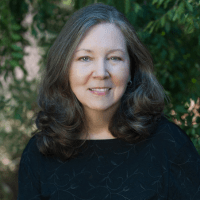
Roberta Cruger (she/her) is senior outreach specialist at Hollywood, Health & Society (HH&S), a program of the USC Annenberg Norman Lear Center. She works with TV and film writers/producers, connecting them to experts across a range of health topics and social issues to ensure accuracy in scripts. She’s worked in the entertainment business in programming at MTV Networks and Time Warner’s Manhattan Cable, as well as Columbia Pictures, Universal Music International and the Grammy Host Committee. She joined HH&S for the Climate Change Initiative and wrote on environmental issues for Discovery Network’s Treehugger.com and Planet Green channel. Roberta has also contributed to Smithsonian, Salon, The Believer, National Geographic, Los Angeles Times, and MSNBC. Roberta holds a B.F.A. in film and television from New York University. She taught at the School of Visual Arts and at Universidad de las Americas when pursuing her master’s in visual anthropology.
Susan J. Douglas
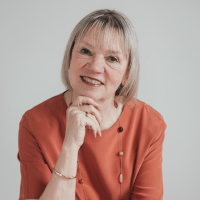
Susan J. Douglas (she/her) is the Catharine Neafie Kellogg Professor and Arthur F. Thurnau Professor of Communication and Media, and former department chair, at The University of Michigan. She is the author of In Our Prime: How Older Women are Reinventing the Road Ahead (Norton, 2020), an “Editors’ Choice/Staff Picks” by the New York Times; Celebrity: A History of Fame (NYU Press, with Andrea McDonnell, 2019); The Rise of Enlightened Sexism: How Pop Culture Took us from Girl Power to Girls Gone Wild (Times Books/Henry Holt, 2010); The Mommy Myth: The Idealization of Motherhood and How it Undermines Women (with Meredith Michaels, The Free Press, 2004); Listening In: Radio and the American Imagination (Times Books, 1999), which won the Hacker Prize in 2000 for the best popular book about technology and culture; Where The Girls Are: Growing Up Female with the Mass Media (Times Books, 1994; Penguin, 1995) and Inventing American Broadcasting, 1899-1922 (Johns Hopkins, 1987). She received her B.A. from Elmira College (Phi Beta Kappa) and her M.A. and Ph.D. from Brown University. She has lectured at colleges and universities around the country, and has written for the New York Times, The Nation, In These Times, The Village Voice, Ms., The Washington Post and TV Guide, and was media critic for The Progressive from 1992-1998. Her column “Back Talk” appeared monthly in In These Times until 2017. She has appeared on The Today Show, The CBS Early Show, The Oprah Winfrey Show, Working Woman, CNBC's Equal Time, NPR's Fresh Air, Weekend Edition, The Diane Rehm Show, Talk of the Nation, Michael Feldman’s Whad’ya Know and various radio talk shows around the country. Where the Girls Are was widely praised, and chosen one of the top ten books of 1994 by National Public Radio, Entertainment Weekly and The McLaughlin Group. She served on the Board of the George Foster Peabody awards from 2005-2010, and in 2010 was selected as Chair of the Board. She is the 2009 recipient of the Leonardo Da Vinci Prize, the highest honor given by the Society for the History of Technology to an individual who has greatly contributed to the history of technology through research, teaching, publications, and other activities. She lives in Ann Arbor, Michigan with her husband.
Soraya Giaccardi
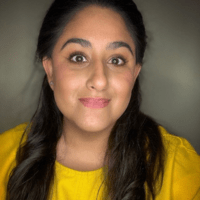
Soraya Giaccardi (she/her) is a Senior Researcher at the USC Norman Lear Center. Her research interests center on representation and inclusion of marginalized communities (e.g., gender, race/ethnicity, sexual orientation, disability, age, body size) in entertainment media, and how these representations contribute to real-world attitudes and behaviors. Her work has been published in peer-reviewed academic journals such as Psychology of Violence, Media Psychology, Psychology of Men and Masculinity, Sex Roles, Psychology of Women Quarterly, and Emerging Adulthood. Soraya has been a contributing author to 15 public research reports which have received coverage from Deadline, The Hollywood Reporter, Variety, and more. She received her Bachelor’s at The University of Texas at Austin and is a doctoral candidate (ABD) at The University of Michigan. Previously, Soraya served as the Associate Director of Research at the Geena Davis Institute on Gender in Media. She has collaborated with content creators, ad-agencies, and various nonprofits, including The Representation Project, Equimundo, Plan International, Define American, and Everytown For Gun Safety. You can learn more about her work at www.sorayagiaccardi.com.
Beth Hoffman
Beth Hoffman (she/her) is an Assistant Professor in the Department of Behavioral and Community Health Sciences at The University of Pittsburgh School of Public Health. After graduating from Brown University in 2007, Beth completed
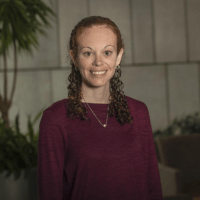
her first year of medical school at the Perelman School of Medicine at the University of Pennsylvania before deciding to switch her career focus to public health and health
communication. She completed her Master's in Public Health in 2019 and received her PhD from Pitt Public Health in May 2022. Her research focuses on the portrayal of health topics on popular television programs, including a study published in 2022 examining the aging storyline on This Is Us. Beth’s research also examines health information and misinformation on social media, and her research examining anti-vaccine misinformation has been featured by multiple news outlets, including CNN, The New York Times, and a 2020 documentary on the Hulu streaming service.
Deborah Jermyn
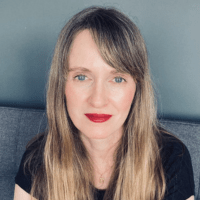
Deborah Jermyn (she/her) is Associate Professor in Film at the University of Roehampton, UK. She is the author and editor of 11 books including (with Su Holmes) Women, Celebrity & Cultures of Ageing: Freeze Frame (2015). Her work on gender, aging and the media has featured in numerous journals and publications including Feminist Media Studies, the European Journal of Cultural Studies, and Critical Studies in Television. Of late her work has focussed on the recent movement she has termed ‘the menopausal turn’ - a cultural shift characterised by a newly inflected era of pronounced public conversation around menopause – and the ramifications of this for how menopause is popularly envisioned, understood and experienced (Journal of Aging Studies, 2023).
Jo Littler
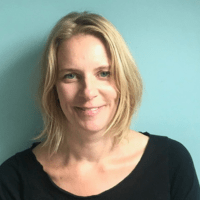
Jo Littler (she/her) is Professor of Culture, Media and Social Analysis at Goldsmiths, University of London, UK from September 2023. Her books include Against Meritocracy: Culture, Power and Myths of Mobility (2018); An Intergenerational Media Studies: Conflicts and Connectivities, ed with Jessalyn Keller and Alison Winch (2018); with The Care Collective, The Care Manifesto: The Politics of Interdependence (2020). Her most recent book is Left Feminisms: Conversations on the Personal and the Political (2023). She is a co-editor of the European Journal of Cultural Studies and part of the editorial collective of Soundings: A Journal of Politics and Culture.
Alfred L. Martin, Jr.
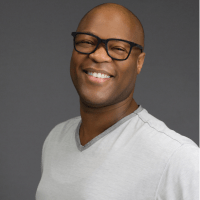
Alfred L. Martin Jr. (he/him) is an Associate Professor of Media Studies at University of Miami. He is author of The Generic Closet: Black Gayness and the Black-Cast Sitcom (Indiana University Press, 2021) and has published articles in scholarly journals including International Journal of Cultural Studies, Journal of Cinema and Media Studies, Communication, Culture & Critique, Feminist Media Studies, Popular Communication, and Television and New Media. Martin has also written essays for The Washington Post and Los Angeles Review of Books, and has been interviewed/cited in The New York Times, USA Today, The Washington Post, and NPR’s Marketplace, among others. Martin is currently working on a solo-authored book, On the Black Hand Side: Black Fandoms and Cultural Politics, an exploration of Blackness and fandom studies (New York University Press), a co-authored monograph on the documentary Tongues Untied (McGill-Queen’s University Press), and Rolling: Blackness and Mediated Comedy (Indiana University Press), an edited collection on Blackness, comedy and media.
Shani Orgad
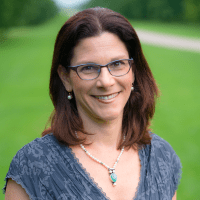
Shani Orgad (she/her) is Professor of Media and Communications at the London School of Economics and Political Science (LSE). Her research focuses on gender, feminism and the media, inequality and contemporary culture, and media representations of suffering and migration. While her work runs across a range of spheres and contexts, it is unified by asking how cultural and the media narratives shape public imagination, lived experiences, and workplace cultures and practices. Shani is the author of numerous articles, op-eds, blogs, and five books including, most recently, Confidence Culture (with Rosalind Gill, 2022, Duke University Press) and Heading Home: Motherhood, Work, and the Failed Promise of Equality (2019, Columbia University Press). She has written for The Atlantic, Al Jazeera, The Hill, and The Conversation and her research has been widely covered by international outlets including New York Times, Washington Post, Guardian, El Pais, Die Zeit , Vox and Financial Times.
Philana Payton
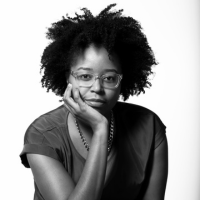
Dr. Philana Payton (she/her) is an assistant professor of film and media studies at the University of California, Irvine. She was previously awarded a UC Chancellor’s Postdoctoral Fellowship in the Ralph J. Bunche Center for African-American Studies at the University of California, Los Angeles. Her research focus uses Black Studies, Performance Theory and Film Theory to explore blackness and visual culture through Black women’s performances. Dr. Payton has also done extensive archival research on early 20th century Black Silent Cinema and has conducted race and gender analyses on classical era films through today's cinema, television, and media. She has published work in Film Quarterly, Seen by Blackstar, and Film Criticism and is currently working on her first manuscript, tentatively titled, Celestial Bodies: Black Women, Hollywood, and the Fallacy of Stardom.
Catherine Rottenberg
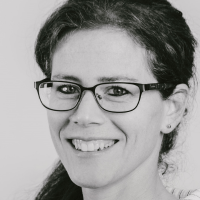
Catherine Rottenberg (she/her) is Professor of Feminist Thought and Culture in the Department of American and Canadian Studies at the University of Nottingham. Her monographs include The Rise of Neoliberal Feminism (2018) and Performing Americanness: Race, Class, and Gender in Modern African-American and Jewish-American Literature (2008). She is also the co-author of The Care Manifesto (2020) and editor of This Is Not A Feminism Textbook! (2023) and Black Harlem and the Jewish Lower East Side: Narratives out of Time (2013). Her current collaborative research project investigates—and attempts to account for—the heightened visibility of menopause in mainstream and popular UK and US culture.
Paula Span
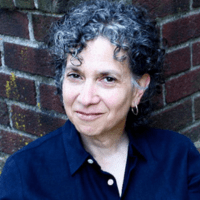
Paula Span (she/her), a veteran journalist, has written the New Old Age column for the New York Times since 2009. Her book, “When the Time Comes: Families With Aging Parents Share Their Struggles and Solutions,” was published by Hachette in 2009 and remains available as an e-book. In 2017, she added an occasional column for the Times called “Generation Grandparent” and adapted those columns for a 2021 audio work for Audible, “The Bubbe Diaries.” She is at work on a book about life in one’s ninth decade for Portfolio, an imprint of Penguin Random House. A graduate of the Boston University College of Communication and a student at The Annenberg School at the University of Pennsylvania, she is a former staff writer for the Washington Post and a longtime freelance contributor to many magazines, newspapers and digital publications. She has helped train the next generation of journalists at the Columbia University Graduate School of Journalism since 1999. She lives in Montclair, N.J.
Brenda R. Weber
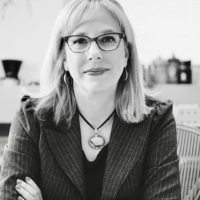
Brenda R. Weber (she/her) is the Provost Professor and Jean C. Robinson Scholar in the Department of Gender Studies at Indiana University Bloomington. Additionally, she is the Director of the College Arts + Humanities Institute (CAHI). The institute has two central components: 1) to foster the creation of new knowledge through the support of research and creative work in the arts and humanities in the College, and 2) to serve as a public advocate for the arts and humanities in order to demonstrate how our work provides essential intellectual leadership on a wide range of matters of concern. An author of five books, her work engages with a wide archive of mostly discredited cultural texts, including non-canonical 19th-century transatlantic women's literature and contemporary media, specifically literature, film, and television. As it relates to these texts she has a particular interest in how identity is discursively gendered, constructed, and embodied through written and mediated means, as well as how gender, sex, sexuality, race, and class work together to inform notions of the "normative" self. Celebrity, masculinity, and American religious cultures have become important themes, offering a framework for coherency across the many modalities in which she works.
Jennifer Wong
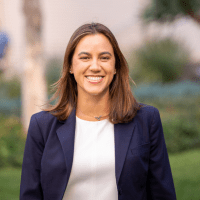
Dr. Jennifer Wong, Ph.D. (she/her), serves as Director of Wallis Annenberg GenSpace, an innovative community center made for older adults in Los Angeles. With more than 180 active members and more than 35 weekly classes, GenSpace is creating a thriving community for older adults to connect with others, explore their creativity, and try new things. Through its programming, GenSpace has become a symbol of vibrant aging and Dr. Wong is similarly working to change how people think about growing older. Through events with leaders, experts, and cultural icons, she’s working to tell better stories about what it means to age. Prior to her role at GenSpace, Dr. Wong assisted the California Department of Aging to develop Governor Newsom’s Master Plan on Aging as California’s population of people over 65 is projected to grow sharply in the next decade. Dr. Wong completed her Doctorate in Experimental Psychology from the University of Montana. She holds a Master of Arts in Psychology from Cal State Sacramento and a Bachelor of Arts from the University of San Francisco.
About the Annenberg Center for Collaborative Communication
The Annenberg Center for Collaborative Communication (Annenberg C3) enables scholars to think and work across institutional, geographic and disciplinary divides. Jointly established by the USC Annenberg School for Communication and Journalism and the University of Pennsylvania’s Annenberg School for Communication, the center’s faculty, postdoctoral fellows and doctoral students seek to address emerging global issues broadly across the field of communication and media.
The first-of-its-kind center not only explores what “collaboration” means for the field of communication and media, but also provides critical infrastructure for reimagining and potentially revolutionizing how collaborative communication can be used to address complex issues such as health care, data privacy, cultural and demographic change, politics, new media, gender/racial equity and justice, media literacy and policy, journalistic trust, and the restructuring of media industries in an evolving age of streaming and networked distribution.
Events
View AllDisclaimer: This event may be photographed and/or video recorded for archival, educational, and related promotional purposes. We also may share these video recordings through Annenberg's website or related platforms. Certain events may also be livestreamed. By attending or participating in this event, you are giving your consent to be photographed and/or video recorded and you are waiving any and all claims regarding the use of your image by the Annenberg School for Communication. The Annenberg School for Communication, at its discretion, may provide a copy of the photos/footage upon written request.
